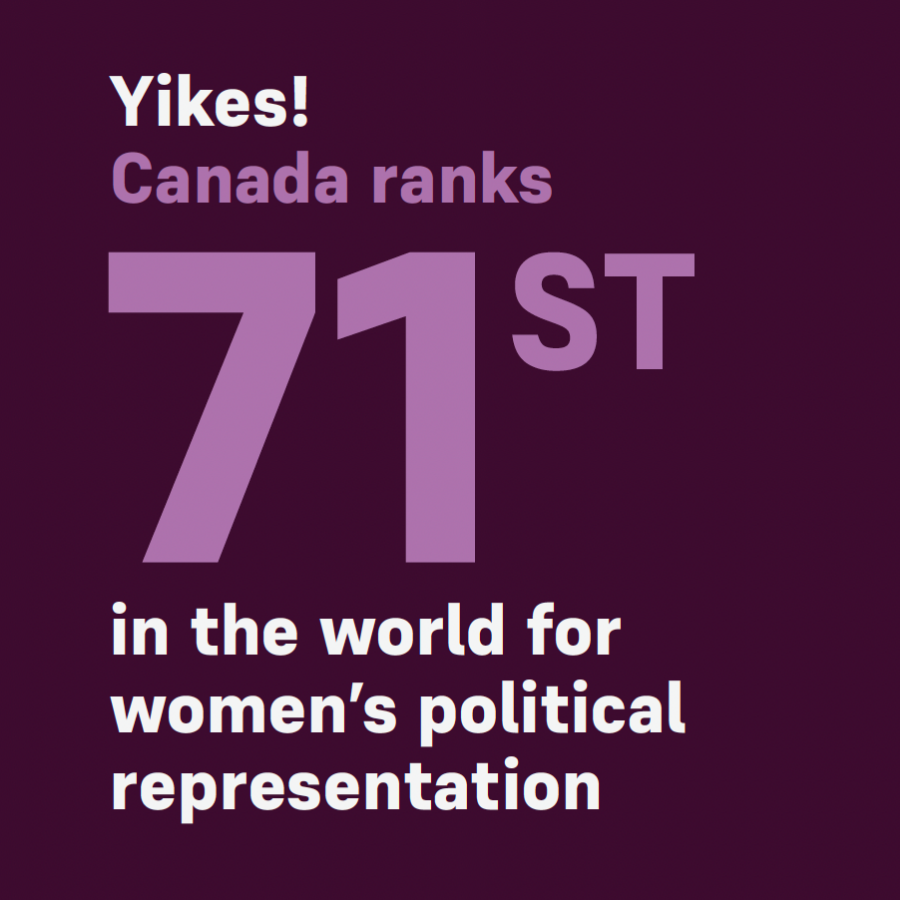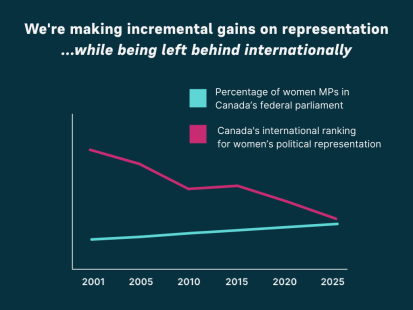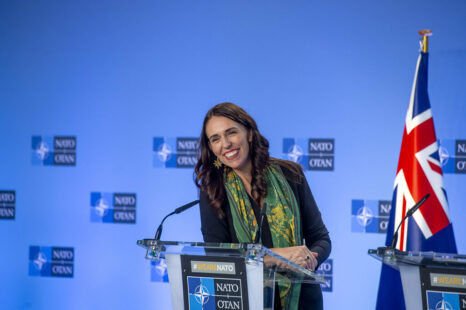(Ottawa) – September 22nd, 2025 –Informed Perspectives reveals that Canada’s status as a global champion of gender equality is under serious threat.
In just 25 years, the country has plummeted from 28th to 71st place in world rankings for women’s representation. This significant decline highlights the inadequacy of our current approach to achieving parity in Canadian politics. This backslide has occurred despite overwhelming support for change. New polling from Abacus Data reveals that gender parity is a core belief for most Canadians, with 86% saying it’s important to have equal representation of men and women in politics at all levels of government.
Democracy Deficit “Equal representation is fundamentally about democracy and trust,” said Shari Graydon, Catalyst at Informed Perspectives. “Canadians overwhelmingly expect that women should hold the balance of power in politics at all levels, and Canada cannot claim to be a global leader on equality while men dominate at 70% in our highest decision-making body.”
The consequences extend far beyond representation numbers. A significant majority of Canadians understand that gender parity delivers tangible benefits to Canadian democracy, with roughly four in five people saying that ensuring a balance of power among elected representatives leads to:
- Improved policy outcomes that accurately reflect the diverse realities of the entire
population - Stronger political discourse reflecting increased civility and respect
- More effective governance through increased productivity
Global Representation Standard
While Canada’s ranking has continued to slip, countries around the world have explicitly acted to address equality. More than 100 nations have implemented concrete steps to increase gender parity by setting minimum representation targets and requiring political parties to meet them. These countries recognize that meaningful representation requires decisive action, not wishful thinking. They also understand that such gains feed increased trust in electoral outcomes.
Strategies Canada Must Adopt
Inclusive candidate recruitment and nomination processes can make a big difference in ensuring that women and gender-diverse people have a seat at the decision-making table.
Countries that have been successful in ensuring meaningful representation have implemented different strategies, including electoral reform, a parity law, constitutional reform and mandatory quotas. “Canada has an opportunity to lead the world by strengthening women’s political representation. By working together across all levels of governments, institutions, and communities we can ensure women and gender diverse people are equal partners in shaping Canada’s future,” said Chi Nguyen, Member of Parliament for Spadina–Harbourfront.
“Government must lead by example if we want true gender parity in Canada. When public institutions reflect the diversity of our country, they set a powerful standard for businesses to follow – and unlock the full economic potential of a workforce where everyone can contribute and thrive,” said Julie Savard-Shaw, Executive Director, The Prosperity Project.
The choice facing Canada’s political leadership is clear: implement proven strategies that have been successful internationally or watch Canada’s global standing continue to drop.
To learn more about Informed Perspectives: visit our advocacy page
Data sources: Women in National Parliaments, IPU: Parline Global Data
Media Contact:
Annette Goerner
Managing Director, Public Relations
spark*advocacy
annette@sparkadvocacy.ca
613-818-6941






